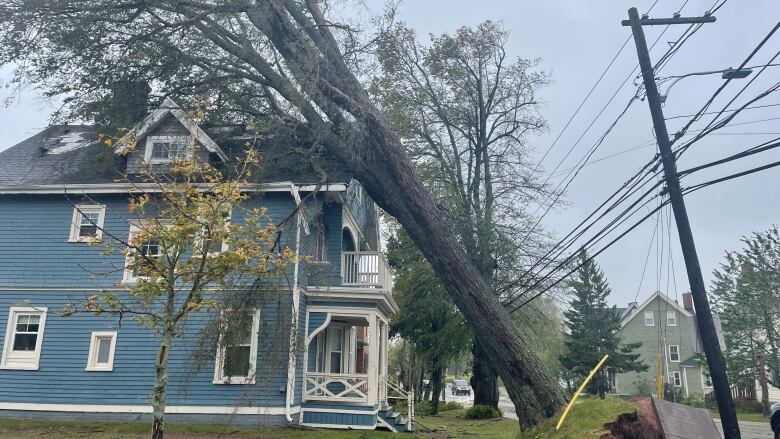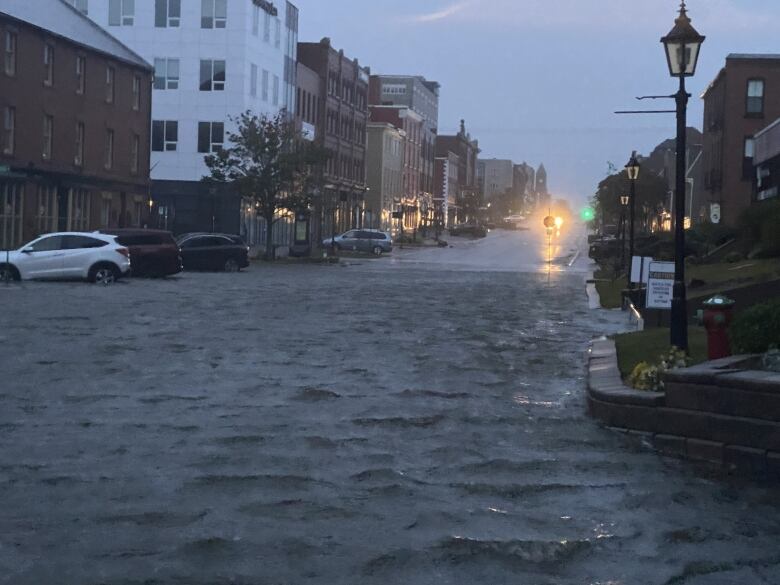Have a good relationship with your home insurance rep? If not, it may be time to build one
Claims and costs rising, so being proactive about your policy more important than ever

Do you know if your home insurance premium is going up this year? How about your deductible?
If you answered "no" to either of those questions, it may be time to have a closer look at your policy and reacquaint yourself with your insurance agent.
"It's a good idea to really engage in what's being communicated and ask some really important questions, because our homes are the biggest investment that most of us will make in our lifetime," said Amanda Dean, the Insurance Bureau of Canada's Atlantic vice president.
"Ask your insurance representative have the limits changed on certain coverages? Are there additional coverages that are available?"
Homeowners have more insurance policy options than ever before, especially given the rise in extreme weather events affecting Atlantic Canada.

But insurance companies are also dealing with an increased number of claims, and the inflationary costs that make covering them more pricey.
That all means you might end up paying more for your policy.
Dean told Island Morning'sLaura Chapin that it's more important than ever for homeowners to be proactive about their coverage and engage with their insurance company representative.
After Fiona struck Atlantic Canada as a post-tropical storm inSeptember 2022, insurers covered around $800 million in damage claims across the four provinces.
Most insurance companies have now addedpolicy options for overland flood coverage to insure Canadians against home damage caused by that typeof climate event.
"On the Island, there's not a lot of flooding due to rivers overflowing,like there is in other parts of the country," said Dean. However, there is pooling of water after heavy rain events. We've seen that a couple of times now in downtown Charlottetown in recent history."

Of course, the option to add these additional coverages could come with additional costs to you on the front end.
Chapin mentioned to Dean that one of her CBC P.E.I. colleagues had noticed their deductible the amount clients are responsible for paying when making an insurance claim had nearly doubled when that person's policy was renewed.
That's exactly why it's important to check your policy against what you were paying the year before, Dean said, and to have a dialogue about the costs with your insurance rep.
She said a client's claim history over the past few years could affect premiums and deductibles. While negotiating a lower deductible is possible, that will likely increase what you're paying for your policy.

"Like all of us, insurance companies have seen the impacts of inflation, and when you think about all of their inputs to get people back on their feet all of those things have become more expensive over the past few years," Dean said.
"Insurers need to ensure that they have enough money in that pool of funds in order to pay the claims that are coming two weeks from now, three months from now, six months from now."
'It's no longer a blip'
Dean said the Insurance Bureau of Canada is always looking at what the industry and governments can do to better protect homeowners.
The bureau successfully advocated for the creation of a national flood insurance program to ensure overland flood insurance is available at a low cost for thosewho need it.The goal is to have that program available by April 1, 2025.
Will events like Fiona and their cost to insurance companies mean everyone will be soon be paying more for their policies? It's possible, Dean said.
"One event doesn't necessarily change things, it could be a blip on the screen," she said. "However, what we're starting to see in terms of weather-related claims [is] it's becoming a trend. It's no longer a blip.
"The more pressure that there is on claims costs, the more pressure there is going to be on premiums."
With files from Island Morning












_(720p).jpg)


 OFFICIAL HD MUSIC VIDEO.jpg)
.jpg)



























































































